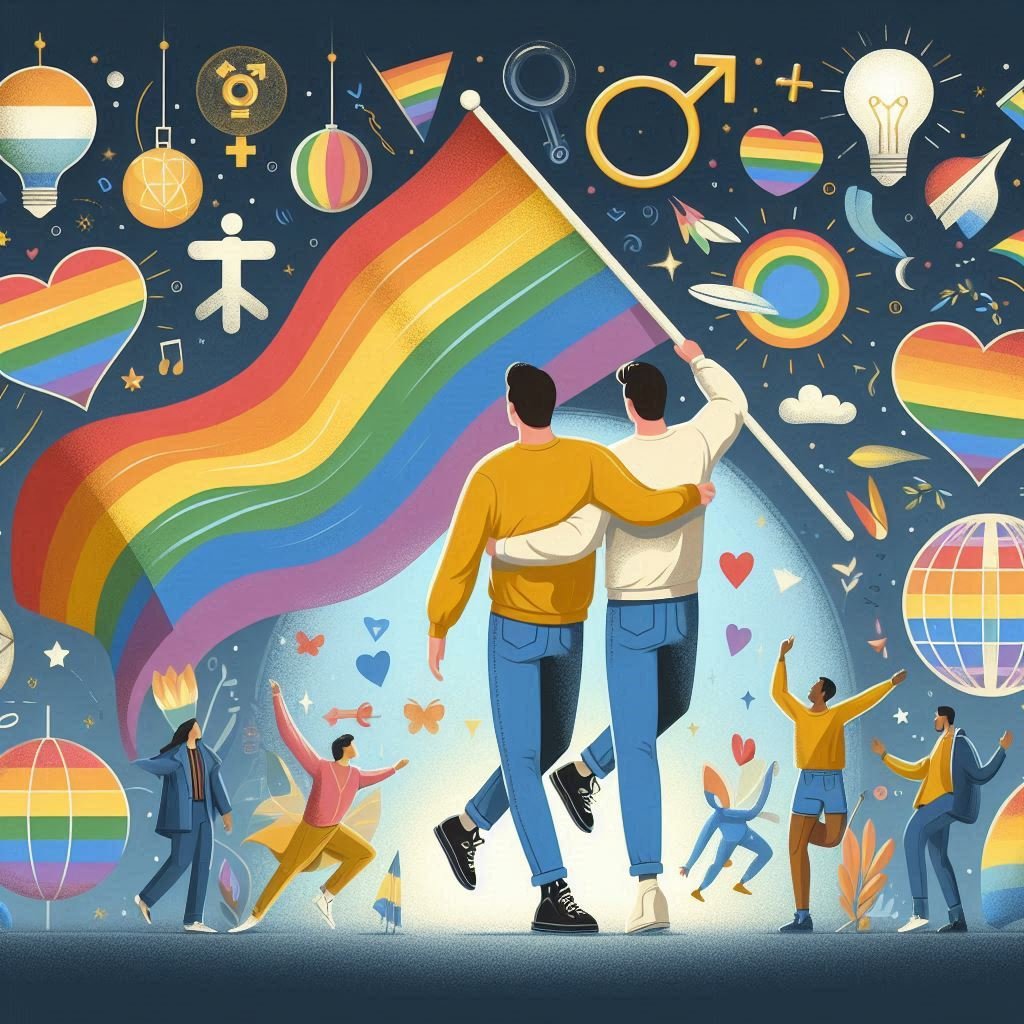Coming out is a deeply personal journey, often filled with challenges, courage, and hope. Sharing these experiences helps build understanding, create solidarity, and show others that they’re not alone. In this article, we highlight inspiring coming-out stories and explore the diverse paths that LGBTQ+ individuals take to live openly and authentically.
What “Coming Out” Means: Historical and Modern Perspectives
The concept of “coming out” has evolved over time, reflecting changes in society and LGBTQ+ visibility. Historically, coming out was associated with significant risk, especially in communities where LGBTQ+ identities were stigmatized.
Today, coming out can mean different things, depending on each person’s circumstances and comfort level. For some, it’s a public declaration, while for others, it’s a gradual, private process shared only with close family or friends. The journey remains deeply personal, and each story represents a unique mix of bravery, vulnerability, and resilience.
Inspiring Stories from Different Ages: From Teens to Seniors, Different Experiences
Coming out is often associated with young people, but it’s a journey that LGBTQ+ individuals may face at any age. Here are a few inspiring examples:
- Teens Finding Their Voice: Many young LGBTQ+ individuals begin coming out in their teenage years. These stories are often characterized by self-discovery, acceptance, and courage. For instance, some teenagers find support through school LGBTQ+ clubs, which offer safe spaces to express themselves and connect with allies.
- Young Adults Embracing Authenticity: In their 20s and 30s, LGBTQ+ individuals often navigate coming out in new environments, such as universities or workplaces. These stories frequently highlight experiences of finding supportive friends, allies, and romantic partners who appreciate them for who they truly are.
- Later-in-Life Stories: Many individuals come out in mid-life or even later. This experience can be both challenging and freeing, as older LGBTQ+ people may need to navigate complex relationships, such as marriages or parenthood. Their stories often show that it’s never too late to embrace authenticity and live openly.
Each of these stories brings hope and inspiration, showing that coming out is an empowering process, no matter when it happens.
Family and Friends’ Reactions: Handling Mixed Responses with Confidence
A significant part of coming out involves sharing one’s identity with family and friends, which can lead to a wide range of reactions. Here are some tips for navigating this aspect of the journey:
- Prepare for Mixed Reactions: Every person reacts differently, and reactions may range from unconditional support to surprise, confusion, or even initial rejection. Knowing this can help prepare you emotionally for different responses.
- Set Boundaries if Needed: If family or friends react negatively, setting boundaries can be crucial to protecting your well-being. You have the right to limit contact or choose not to discuss your identity with those who don’t provide support.
- Allow Time for Adjustment: Sometimes, people need time to understand and accept the news. It can be helpful to give them space to process while also maintaining your own boundaries and self-care.
- Seek Support: Connecting with LGBTQ+ support groups or friends who understand your experience can offer strength and affirmation, especially if you face challenging responses.
By handling mixed reactions with confidence and self-respect, LGBTQ+ individuals can build resilience and move forward in their journey with authenticity.
Finding LGBTQ+ Support: Online and In-Person Resources
Having a support network is essential for LGBTQ+ individuals, especially during the coming-out process. Here are a few ways to find community and connection:
- Online Communities: Platforms like Reddit, Instagram, and Facebook host LGBTQ+ support groups where people can share their experiences and connect with others. These spaces offer a sense of community and understanding that can be particularly valuable if local resources are limited.
- Local LGBTQ+ Centers and Organizations: Many cities have LGBTQ+ community centers that offer support groups, counseling, and events. Organizations like PFLAG and the Trevor Project provide services for both LGBTQ+ individuals and their allies, offering safe spaces for connection and learning.
- Supportive Therapists: LGBTQ+-affirmative therapists can help guide you through the emotional aspects of coming out and provide tools to manage stress, anxiety, or any other challenges that arise.
These resources not only offer support but also help LGBTQ+ individuals build a foundation of confidence and resilience as they embrace their identities.
Celebrating Your Journey: Embracing Your Story and Finding Your Voice
Coming out is a powerful step toward embracing an authentic life. Each story, unique and brave, stands as a testament to self-discovery and resilience. By sharing your journey and connecting with supportive communities, you not only enrich your own life but also inspire others on similar paths. Embrace your story with pride, as each experience contributes to a world where everyone can live openly and confidently.





